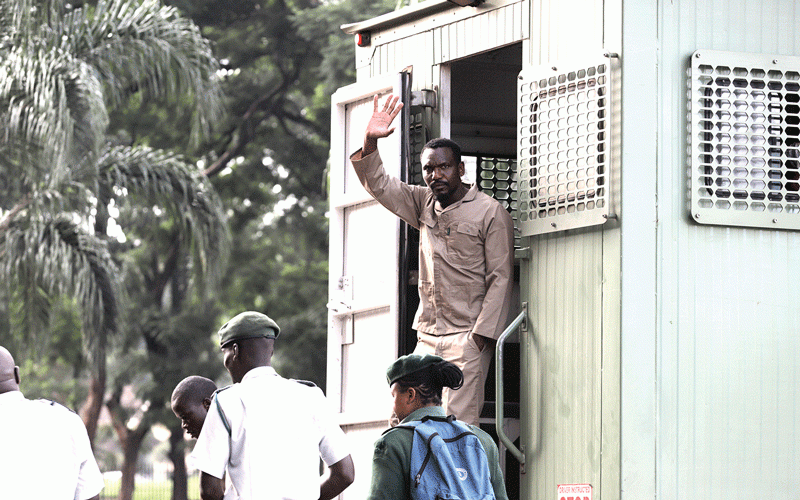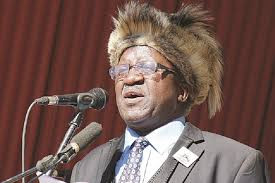
IT’S 4am and I have been struggling to sleep all night owing to the pain of lying on the hard concrete floor, scratching bed bug bites and overcrowding in the cell.
Now, some sleep is finally overpowering me, as I start enjoying dreaming about home, my wife and kids.
My small honeymoon is cut short by loud songs of worship and praise. I later learnt that was a daily ritual at Harare Remand Prison, where even non-believers turn to God.
Even in anger, I could not resist the sweet melodious voices singing in harmony as fellow inmates called on God’s grace and forgiveness ahead of prayers which happen every morning just before the prison guards order us to sit in rows and columns for the counting regime, known as “foren” to inmates.
Foren is a bastardised term for “fall in line”.
By the time guards troop in at 6am weekdays, blankets should have been cleared, everyone must be sitting in line, which is why inmates wake up early for prayers.
Songs fill the cold passages and walls, verses from the Bible are read and words of encouragement are shared, as accused persons — facing various charges ranging from murder, armed robbery, rape and allegations of transmitting messages inciting violence — prepare to go to court for bail applications, trials or refusal of further remand.
“Dear God, we come before you this morning as your children. We know we have fallen short and transgressed against you,” Pastor Paswa would pray almost every morning.
- Grace tidings: Do you understand what it means to be holy?
- Witness will testify that Kelly Khumalo shot Senzo Meyiwa by mistake – defence lawyer
- Grace Tidings: The grace of God and His unconditional love
- Re-imagining the Workplace: The psychology of visions and missions
Keep Reading
“We raise our voices to you from detention, praying that you hear us and your hand will guide the hearts of the magistrates so that they grant us bail. Those who have been here long, may they be released on further remand refused.
“God, we pray for acquittals, so that your children can go home to their families.”
Before being incarcerated, he was a pastor.
Denied bail for close to eight months on allegations of fraud, in B1 holding cell, he had become the spiritual guide, counselling those nearing breaking point and among those of us thrown into remand prison for the very first time.
In prison, self-confessed armed robbers, rapists and thieves, who shared with me some of the details of the heinous crimes they had committed and even boasted how many times they had escaped both the police and the courts, turn to Christianity — and in prison they pray and pray without ceasing.
After having ravaged the homes of other people wielding guns and robbing many of their victims of their valuable life-savings and in some instances ending the lives of other human beings in cold blood, you would be shocked that these somewhat heartless criminals who await trial turn to the invisible hand of the Almighty so that he lifts them out of their self-inflicted misery for a second chance, prayers easily forgotten once set free.
During my 72 days in prison, we counted six accused persons who had been granted bail or acquitted, who had been re-arrested on fresh charges and brought back to the cells.
“We have nothing else to keep us alive. My life is that of crime, we have to share with those who have because I don’t have,” said one of the accused persons, now serving 16 years for armed robbery at Chikurubi Maximum Security Prison.
Behind the white walls guarded 24 hours by armed men, sniffer dogs and CCTV cameras, God is the centre of hope and prayer is the weapon of choice.
Accused persons here rely more on the spirit and less on the skill and knowledge of law of their lawyers.
Bribery is also at the centre of the judicial system.
Magistrates who allegedly receive bribes are known by name and openly discussed.
Some accused persons have openly bragged of paying around US$300 to US$500 to prosecutors and judges so that they are freed.
Some, after making these claims, are normally released in just a matter of days, but there has never been direct evidence save for a few arrests of officers of the court for taking bribes.
But clearly, God and bribes rule the roost here.
Just as cells are locked in the evening, from around 6pm to 8pm, it’s song and dance again, with prisoners clapping their hands and stomping their feet to create musical rhythms in praise of God, all in the hope that he will hear and act.
Sometimes he does act, but in most instances, lengthy jail sentences are passed to those convicted.
Throughout the afternoon, church services are held.
Inside the high walls, there are even those who claim to have powers bestowed unto them by the Almighty to free other prisoners from the pits.
These gentlemen, despite fighting and failing to get their own freedom, pray for others and see in their visions their “subjects” being granted bail or acquitted.
More often, I wondered why they would fail to foresee their own bail or acquittals flailing.
Out of desperation, inmates believe in almost anything that can get them out of prison and at times, this comes at great financial cost.
Relatives pay prophets and consult traditional healers who give them some of the strangest prescriptions, including eating raw human waste in return for freedom.
In my 72 days at Harare Remand Prison, I saw some of the strangest of things.
My own young brother came to me on day 35 and asked if I was open to the intervention of a sangoma, raising the spirits of the dead to fight for justice on behalf of the living.
Out of fear of unintended consequences of Tula and Bechulude, I politely denied.
My weapon of choice was my lawyers and my prayers to God was for protection and my health.
Around day 20 in prison, I was invited to preach and my words were painful to many, but welcome to others because as a victim of crime myself, I had no kind words for those who steal other people’s hard work.
In fact, the Bible frowns on such behaviour.
“You are not in here because God is preparing you for anything great,” I began.
“I have listened to some of the sermons here as you tell each other sweet words to build hope.
“I am here to tell you that you are here because you broke the laws of this country, you stole, you forced yourself on someone or you killed.
“You are here as punishment for your evil deeds because the Bible is clear, we all reap what we sow.”
Some looked at me with astonishment, other felt uneasy as my words stung their ears.
I continued: “If you dabble in crime you will reap prison. I have seen how spiritual some of you have become while here, verily I tell you, if you have not repented and your prayer is just for freedom, which very soon once you gain will return to your old ways, forget because you will end up even worse.”
This was part of my teaching.
I was to preach on different days telling fellow inmates that they should care about the politics of the country because most of them had been driven into crime because of poor governance and lack of opportunities.
The pain of sleeping on a hard surface separated only by one waffle-thin blanket, wearing prison issued khakis infested with lice and smelling of sweat from years of use by different prisoners, who pass it down to each other without as much a baptism in soapless water.
Without any support from the outside world, life in that prison is hell, the food is not fit for consumption even by dogs, but it’s fed to humans.
The toilets are dehumanising, as you are forced to relieve yourself or bath without any privacy.
The conditions in that prison will push any strong person closer to God.
Prayer becomes the only option, the only door to hope and without hope, many would die in those pits of hell kept functioning under the guise that it’s a place to keep social outcasts in check.
So, as I pray today after my release, my prayer is that Harare Remand Prison is transformed into a correctional facility and not a punishment station, which only makes even the innocent who pass through it turn into criminals.
Other than that, it belongs to museums or torture relics.










